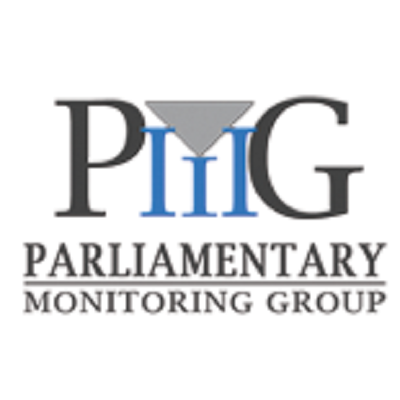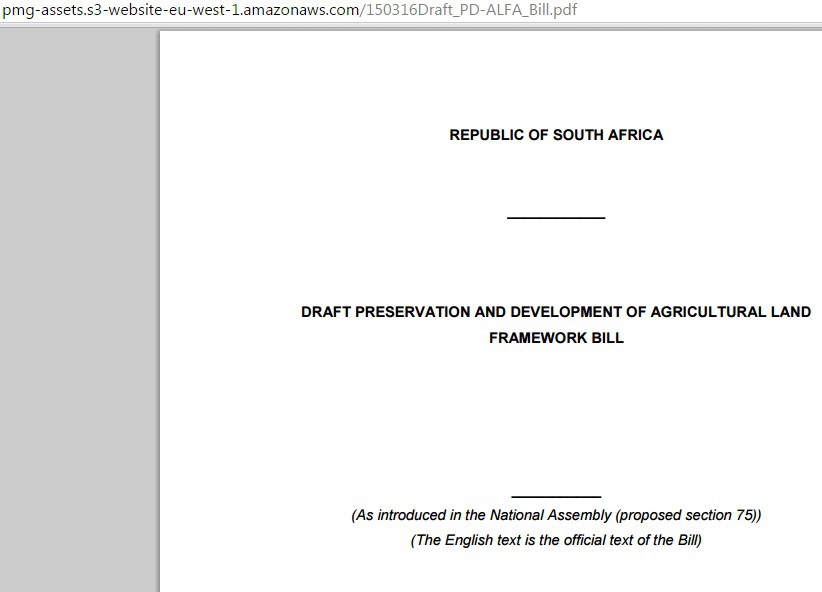Location
What is the Parliamentary Monitoring Group?
The Parliamentary Monitoring Group, an information service, was established in 1995 as a partnership between Black Sash, Human Rights Committee and Idasa with the aim of providing a type of Hansard for the proceedings of the more than fifty South African Parliamentary Committees for these three advocacy organisations. This was because there is no official record publicly available of the committee proceedings - the engine room of Parliament - and this type of information is needed by social justice organisations to lobby the Parliament of South Africa on pieces of legislation, matters of democratic processes and parliamentary oversight of the executive.
This website was set up at the beginning of 1998 to make the information generated available to a wider audience. Presently this is the only source for this type of information. We hope that the PMG committee reports and other documents will provide the public with an insight into the Parliament of South Africa and its daily activity. Importantly it provides a window into the performance of each government department and public entity over which each parliamentary committee has oversight.
PMG became a fully fledged independent NGO in July 2009.
Members:
Resources
Displaying 16 - 20 of 75Expropriation Bill [B4-2015]: consideration with Deputy Minister
The Department produced a Working Draft of the Bill that incorporated all the proposed amendments previously made by the Committee. The Deputy Minister indicated that the Department had introduced the definition of “disputing party” in clause 1, which indicated that the “ disputing party includes an owner, holder of an unregistered right, expropriated owner or expropriated holder that does not accept the amount of compensation offered in terms of clause 14(1)”.
Draft preservation and development of agricultural land framework bill
To provide for definitions of terms used in the Act; to provide for the objects of the Act; to provide for the custodianship of agricultural land; to provide for the application of the Act and the guiding principles of interpretation and implementation of the Act; to provide for agricultural regulation pertaining to subdivision and
Draft policy document on the preservartion and developemnt of agricultural land
The preservation, development and sustainable use of agricultural land are of vital importance to ensure long-term food security. On a global level, food security is closely linked to Goal 1 of the Millennium Development Goals, namely to eradicate extreme poverty and hunger by, amongst others, halving, between 1990 and 2015, the proportion of people who suffer from hunger.
Ingonyama Trust Board & Commission on Restitution of Land Rights 1st Quarter 2015/16 performance; Committee Oversight Reports
The Commission on Restitution of Land Rights (the Commission) presented its expenditure trends and financial and performance report for the 1st quarter of the 2015/16 financial year. The performance was fully described by noting the achievements and the targets. In the first quarter, there was a target to settle 92 land claims but the Commission settled 38. 57 land claims were finalised against a quarterly target of 74. Eight projects were approved, against a quarterly target of 12. From the 1998 land claims, 195 land claims were researched compared to the quarterly target of 532.
Expropriation Bill: deliberations, with Deputy Minister
The Deputy Minister of Public Works presented the latest version of the Expropriation Bill, with some amendments that had been proposed by the Committee or other commentators at earlier sessions. Members firstly wanted to clarify whether this Bill was not preventing other spheres of government from exercising expropriation powers, and the Deputy Minister clarified that any such processes would have to be in line with legislation and following the precepts of Chapter 3 of the Bill.




